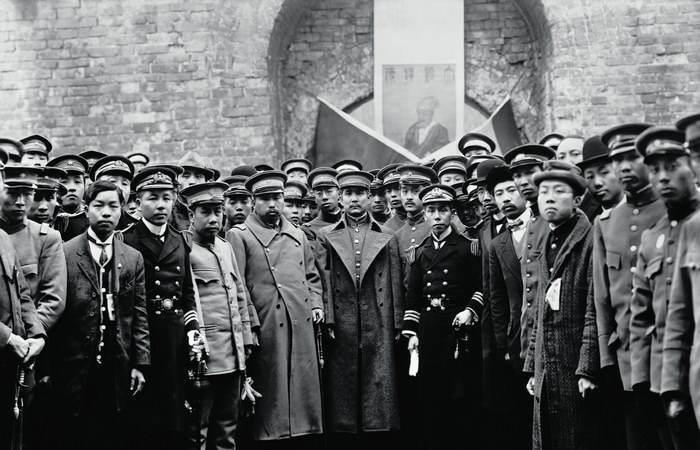In 1911, the Qing court could no longer control the situation, and after the Wuchang Uprising, the rebel army quickly took control of the three towns of Wuhan and established the Hubei military government. In just two months, fifteen provinces, including Hunan and Guangdong, declared independence from the Qing government one after another, and only four of the eighteen provinces in Guannei, namely Gansu, Henan, Zhili, and Shandong, were loyal to the Qing Dynasty.

However, after the Republic of China, the world was only superficially unified, and in fact there were many warlords, such as direct lineage, Anhui lineage, Feng lineage, and so on. However, the strength of some of these warlords should not be underestimated, but these warlords support the army and respect themselves, do not listen to the orders of the central authorities, but dare not become independent.
The independence of the provinces during the Xinhai Revolution was the establishment of a republican form of government and the end of the absolute monarchy. It was independent of the Manchu Qing government, and it was not an independent state.
Just after the provinces declared their independence, the delegates convened a meeting in the British Concession of Hankou and adopted the Organizational Outline of the Provisional Government of the Republic of China, and the independent provinces returned to the central government of the Republic of China.
The warlords of the Republic of China were not the same as the provinces that became independent during the Xinhai Revolution. After Yuan Shikai's death, although the rule at the state level had also ceased in name only, the nominal Beiyang government still existed. Just like Yuan Shikai, who originally tried to restore and Support Puyi's restoration, Zhang Xun is tantamount to digging his own grave.
Although this government and their original intentions are not very different, but at least into the republic, the country is also a unified state, no one wants to return to the imperial era, the same is true for independent statehood, if the country is divided, there is no support from the people.
Moreover, in the warlord situation during the Republic of China period, no warlord was able to suppress the crowd, and since Yuan Shikai's death, the Beiyang warlords have also split, which is because there is no warlord who can suppress the crowd and control the overall situation. However, such a situation has also formed a delicate balance, everyone is holding each other back, and they can only try to dominate and cannot be king.
If a warlord wants to declare independence, he has become the target of everyone, and if he wants to break the balance of the current situation and be the head bird of the gun, he must consider whether he has the ability or not.
These warlords are already emperors of the land, there are soldiers, money and power, the central government has become useless, only nominal leadership, in fact they can do whatever they want. As long as these warlords are not brain-dead, there is no need to risk the world for a false name.
Moreover, objectively speaking, these warlords are not great benevolent people, and they are also murderous for their own power, but they are still worthy of affirmation before the national righteousness, and they are determined not to be traitors.
Like Zhang Zuolin, the king of the Northeast, he did not cooperate with the Japanese army and was killed by the Japanese. Wu Peifu never stepped into the concession for half a step in his life, and finally died at the hands of the Japanese.